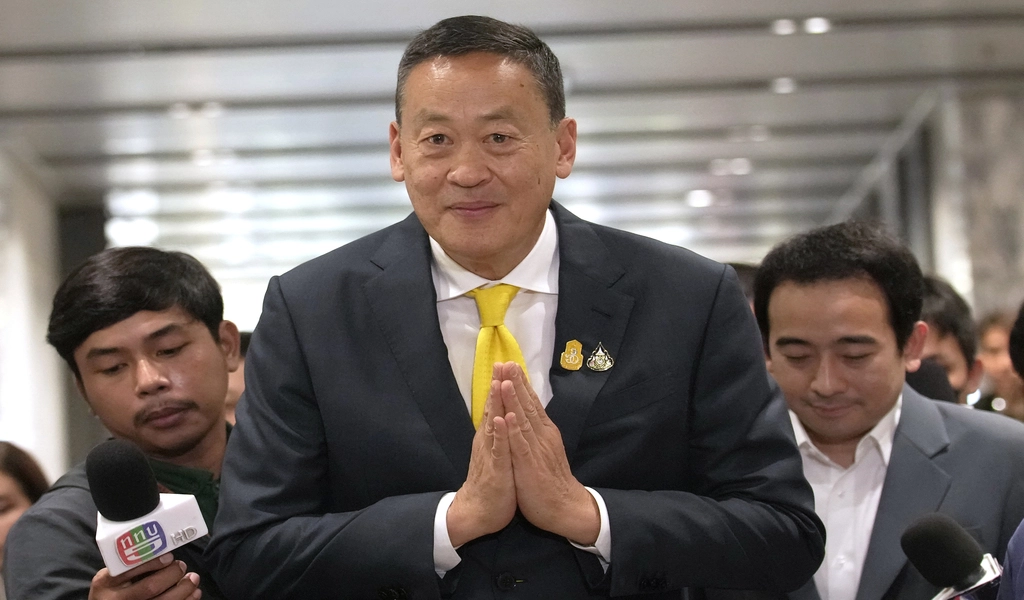(CTN News) – For Thai politics, this has been an incredibly turbulent year. In May, young democratic leaders gained more seats than any other political party in Thailand’s election.
However, the army establishment prevented them from establishing a government, which had manipulated the constitution to their advantage for more than a decade.
The generals then allied with Thaksin Shinawatra’s Pheu Thai party, following which Shinawatra resigned as prime minister during an army coup in 2006 and subsequently left the nation.
Srettha Thavisin, a former real estate magnate who now heads the new government, has made her goals known as the smoke clears. It has disregarded the will of the Thai people, who chose democratic change after years of monarchy-military rule. The populist economic policies of Mr. Srettha have dominated his first few months in government.
He deferred farmers’ debts and lowered electricity prices. One of his more contentious policies is Pheu Thai’s digital wallet plan, which entails distributing 10,000 baht ($285) to around 50 million Thais, with the expectation that they will use the money at establishments close to their registered address.
In May next year, the Thai government intends to unveil a stimulus package worth about $14 billion, or about 3% of the country’s GDP.
You can see Mr. Thaksin’s imprint on the policies. The ex-prime minister ended his self-imposed exile of fifteen years after Pheu Thai reached an agreement with the military in August and returned to Bangkok. Mr. Thaksin is serving a one-year term in the posh section of a Thai hospital after his king swiftly commuted his eight-year corruption sentence. Similarly, populist initiatives, such as a debt moratorium for farmers and loans to every hamlet, dominated his tenure from 2001 to 2006.
Paetongtarn Shinawatra, his daughter, is the Pheu Thai leader. The country has two prime ministers: Mr. Srettha and Ms. Paetongtarn, he joked in October.
According to Veerathai Santiprabhob, a former governor of the Bank of Thailand, the digital wallet initiative is just the most recent example of wasteful and distorted policies implemented by the Thai government.
Mr. Veerathai was one of more than a hundred prominent economists and former central bankers who opposed the stimulus plan in a petition claiming that its expenses exceeded its benefits.
Government investment should take precedence over spending stimulus, according to current central bank governor Sethaput Suthiwartnarueput.
Despite the worst annual growth rate for the economy this year—1.5%—private consumption increased by 8.1% in the third quarter of 2023. Due to this, the growth prediction for 2023 was reduced to 2.5% by the National Economic and Social Development Council (nesdc), the state planning agency of Thailand.
Due to economic mismanagement by the former military administration, which did nothing to address systemic issues, including increasing wealth inequality and an aging population, Thailand’s economy has fallen behind its neighbors in recent years.
The current cash-transfer programs in Thailand are fraught with problems. The military government began providing the impoverished with unconditional cash in 2017. Welfare card holders get 200-300 baht every month.
The nesdc reports that 90% of the impoverished in Thailand do not fall below the poverty line and that half of the poor do not receive this monthly handout.
The digital wallet concept has the backing of the country’s leading opposition party, Move Forward. Instead, it is demanding that the Thai government do something about the country’s fundamental problems, such as dismantling the monopolies that control certain markets.
This is practically unfathomable, considering that Pheu Thai depends on the establishment’s support. As far as Move Forward’s economic team chief Sirikanya Tansakul can tell, Pheu Thai asked them to develop a different stimulus program.
She advocated for more modest government spending to stimulate regional economies, including raising standards for drinking water in Thailand. The authorities told her that financial giveaways were more desirable.






